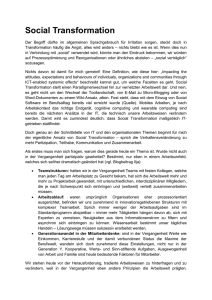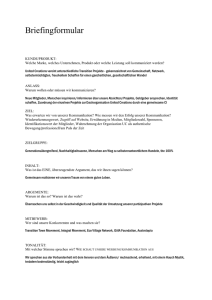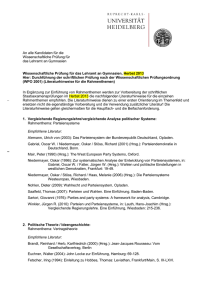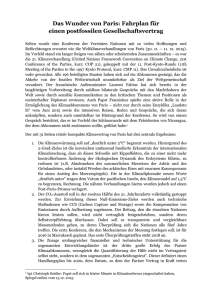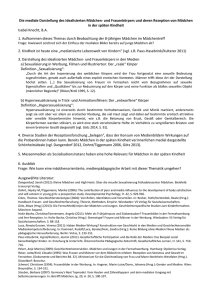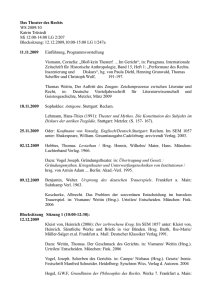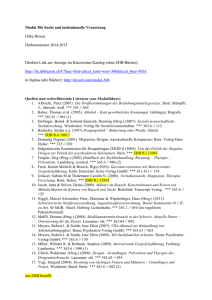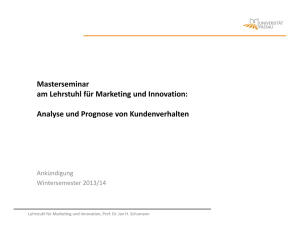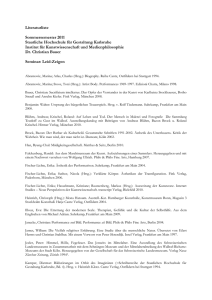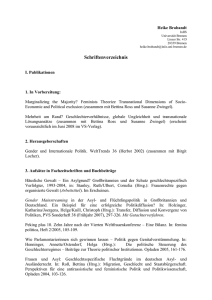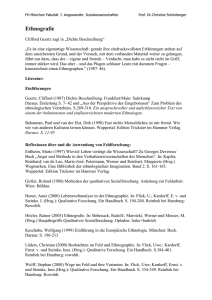Osteuropa nach über 15 Jahren Transformation: Erfolge
Werbung
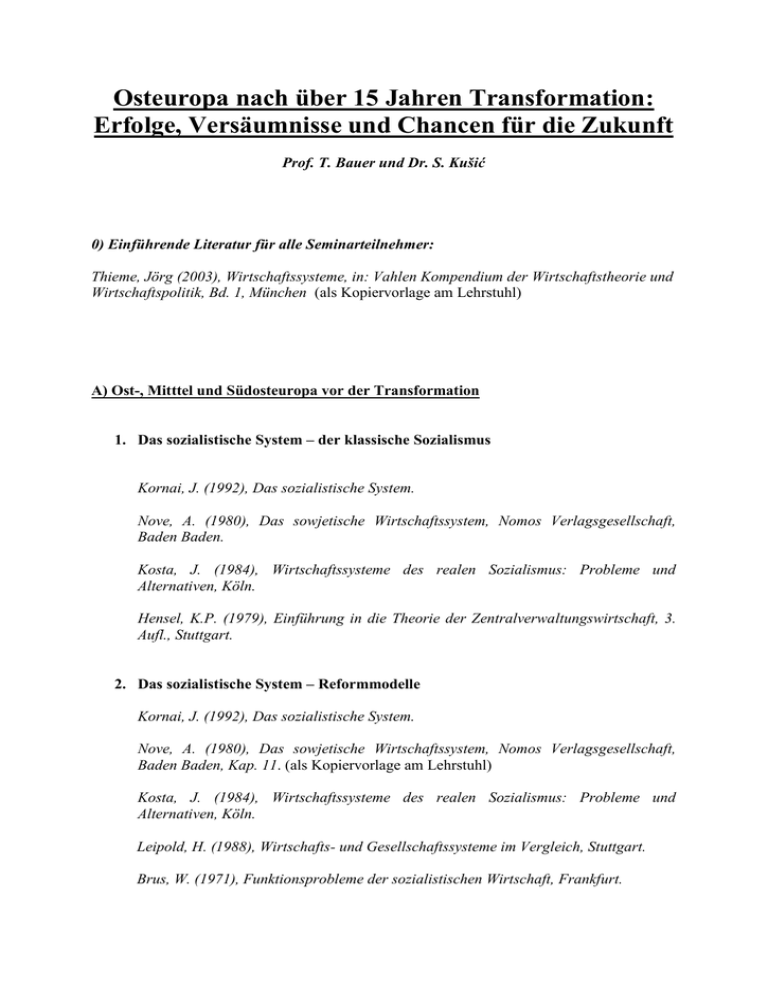
Osteuropa nach über 15 Jahren Transformation: Erfolge, Versäumnisse und Chancen für die Zukunft Prof. T. Bauer und Dr. S. Kušić 0) Einführende Literatur für alle Seminarteilnehmer: Thieme, Jörg (2003), Wirtschaftssysteme, in: Vahlen Kompendium der Wirtschaftstheorie und Wirtschaftspolitik, Bd. 1, München (als Kopiervorlage am Lehrstuhl) A) Ost-, Mitttel und Südosteuropa vor der Transformation 1. Das sozialistische System – der klassische Sozialismus Kornai, J. (1992), Das sozialistische System. Nove, A. (1980), Das sowjetische Wirtschaftssystem, Nomos Verlagsgesellschaft, Baden Baden. Kosta, J. (1984), Wirtschaftssysteme des realen Sozialismus: Probleme und Alternativen, Köln. Hensel, K.P. (1979), Einführung in die Theorie der Zentralverwaltungswirtschaft, 3. Aufl., Stuttgart. 2. Das sozialistische System – Reformmodelle Kornai, J. (1992), Das sozialistische System. Nove, A. (1980), Das sowjetische Wirtschaftssystem, Nomos Verlagsgesellschaft, Baden Baden, Kap. 11. (als Kopiervorlage am Lehrstuhl) Kosta, J. (1984), Wirtschaftssysteme des realen Sozialismus: Probleme und Alternativen, Köln. Leipold, H. (1988), Wirtschafts- und Gesellschaftssysteme im Vergleich, Stuttgart. Brus, W. (1971), Funktionsprobleme der sozialistischen Wirtschaft, Frankfurt. Kušić, S. (2001), Privatisierung im Transformationsprozess: Das Beispiel der Republik Kroatien, Wiesbaden. Kap. 5. Stein, E. (1980), Arbeiterselbstverwaltung, Köln. Dobias, P. (1969), Das jugoslawische Wirtschaftssystem, Entwicklung und Wirkungsweise, in: Schneider, E. (Hrsg.) Kieler Studien, Tübingen. B) Auf dem Weg zur Marktwirtschaft 3. Theorie der Transformation? Schüller, A. (1992), Ansätze der Theorie einer Transformation, in: Ordo, Bd. 43 Merkel, W. (1995),Theorien der Transformation, in: von Beyme, K. und Offe, C. (Hrsg.), politische Theorien in der Ära der Transformation, politische Vierteljahresschrift Sonderheft 26. Eissrich, Daniel (2001), Systemtransformation aus der Sicht der Neuen Institutionenökonomik, in: Schriftenreihe der Forschungsstelle für empirische Sozialökonomik, Bd.5, (Hrsg.) H.P.Haarland/ Niessen, H.J. (als Kopiervorlage am Lehrstuhl) Merke, W. (1999), Systemtransformation. Götz, Roland, (1998), Theorien der ökonomischen Transformation, in: Osteuropa, 48, Heft 4, S. 339-354. (am Lehrstuhl vorhanden) Götz, Roland, (1998), Weitere Theorien der ökonomischen Transformation – Die Rolle der Institutionen, in: Osteuropa, Nr. 11/12, S. 1086-1100. (am Lehrstuhl vorhanden) Schwarz, R. (1995), Chaos oder Ordnung? Einsichten in die ökonomische Literatur zur Transformationsforschung, Marburg. Schipke, A./ Taylor, A. (1994), (Hrsg.), The Economics of Transformation. Theory and Practice in the New Market Economies, Berlin. 4. Liberalisierung und 5. Makroökonomische Stabilisierung Allgemein: Balcerowicz, L. (1992), Der Übergang zur Marktwirtschaft, Bonn. Balcerowicz, L. (1995), Socialism, Capitalism, Transformation, Budapest. (Part II und III. ) (am Lehrstuhl vorhanden) Löhnig, C. (1996): Systemtransformation: Aspekte der wirtschaftlichen Umstrukturierung in den Reformstaaten Osteuropas und der ehemaligen Sowjetunion, Weiden. Niessen, H.-J. (1996): Von der Planwirtschaft zur Marktwirtschaft: Transformationsprozesse im Vergleich, (Hrsg.) Schmölders-Stiftung, München. Fischer, Stanley und Alan Gelb (1991), The Process of Socialist Economic Transformation, Journal of Economic Perspectives, Vol. 5, Issue 4, S. 91105. World Bank (2002), Transition – The First Ten Years. Analysis and Lessons for Eastern Europe and the Former Soviet Union, Washington D.C. Roland, G. (2000), Economics of Transition. Delhaes, K. / Fehl, U. (1991), Der Transformationsprozess in der Zeit: Konsequenzen von Dauer und Reihung systemverändernder Maßnahmen, in: K.H. Hartwig/Thieme (Hrsg.) Transformationsprozesse in sozialistischen Wirtschaftssystemen, Berlin, S 435-463. Hofman, B / Koop, M. (1990), Makroökonomische Aspekte der Reformen in Osteuropa, Die Weltwirtschaft, Heft 1, S. 161-172. Kloten, N. (1989), Zur Transformation von Wirtschaftsordnungen, in: Ordo, 40, S. 99127. Stabilisierung: Buchenrieder, Gertrud (2002), Sequencing of Institution Building in the Transition Process of Central and Eastern Europe’s Financial Systems, Frankfurt. Commander, S. / Dutz, M. / Stern, N. (1997), Restructuring in Transition Economics: Ownership, Competition and Regulation, Washington. Schmidt, R.H. / Winkler, A. (1999), Building Financial Institutions in Developing Countries, Working Paper Series: Finance and Accounting, No. 45, November 1999. Aschinger, G. (2001), Währungs- und Finanzkrisen – Entstehung, Analyse und Beurteilung aktueller Krisen, München. Masson, Paul, "Monetary and Exchange Rate Policy of Transition Economies of Central and Eastern Europe after the Launch of EMU," International Monetary Fund, Policy Discussion Paper, PDP/99/5, July 1999. M. Guitian and R. A. Mundell (1996), Inflation and Growth in the Transition Countries, in: China's Inflation and GrowthWashington, DC: International Monetary Fund . How to Stabilize: Lessons from Post-Communist Countries Andres Aslund; Peter Boone; Simon Johnson; Stanley Fischer; Barry W. Ickes Brookings Papers on Economic Activity > Vol. 1996, No. 1 (1996), pp. 217-313 Economic Transition and the Exchange-Rate Regime Jeffrey D. Sachs The American Economic Review > Vol. 86, No. 2, Papers and Proceedings of the Hundredth and Eighth Annual Meeting of the American Economic Association San Francisco, CA, January 5-7, 1996 (May, 1996), pp. 147-152 Liberalisierung: Csaba, Laszlo. "How to survive reorientation and liberalization: the example of Hungary." In Trade, payments and adjustment in Central and Eastern Europe: proceedings of an EBRD conference, 26-27 March 1992. Ed. by J. M. C. Rollo and J. S. (John Stanton) Flemming. London: Royal Institute of International Affairs, 1992. 242 p. 0905031504. Within context of transition to accession to EU. Policy Performance and Output Growth in the Transition Economies Marcelo Selowsky; Ricardo Martin The American Economic Review. Vol. 87, No. 2, Papers and Proceedings of the Hundred and Fourth Annual Meeting of the American Economic Association (May, 1997), pp. 349-353 Socialist Economy Reform: Lessons of the First Three Years , Stanley Fischer The American Economic Review > Vol. 83, No. 2, Papers and Proceedings of the Hundred and Fifth Annual Meeting of the American Economic Association (May, 1993), pp. 390-395 The Political Economy of Transition Gerard Roland The Journal of Economic Perspectives > Vol. 16, No. 1 (Winter, 2002), pp. 29-50 Transition Economies: Performance and Challenges Jan Svejnar The Journal of Economic Perspectives > Vol. 16, No. 1 (Winter, 2002), pp. 3-28 6. Privatisierung Frydman, Roman und Andrzej Rapaczynski. Privatisation in Eastern Europe: Is the State withering away?, Budapest et al. 1994. Kušić, S. (2001), Privatisierung im Transformationsprozess: Das Beispiel der Republik Kroatien, DUV, Wiesbaden. Kap. 3 und 4. Leipold, H., Der Einfluss von Property Rights auf hierarchische und marktliche Transaktionen in sozialistischen Wirtschaftssystemen, Schüller, A. (Hrsg.), Property Rights und ökonomische Theorie, Verlag Franz Vahlen GmbH, München, 1983, S: 185-218. Leipold, H., Das Eigentum in der Transformationspolitik, Leipold,H. (Hrsg.), Privatisierungskonzepte im Wandel, Arbeitsberichte zum Systemvergleich, NR. 16, Marburg, Juni 1992, S: 1-26. Schmidt, K.M., Schnitzer, M., Methods of Privatization: Auctions, Bargaining, and Giveaways, Giersch, H. (Hrsg.), Privatization at the End of the Century, for the EgonSohmen-Foundation, Springer-Verlag Berlin , Heidelberg, 1997, S: 97-133. Schüsselbauer, Gerhard. Privatisation and Restructuring in Economics of Transition: Theory and Evidence Revisited, EuropeAsia Studies, Vol. 51, Issue 1, Januar 1999, S. 6583. Vickers, J./ Yarrow, G., Privatization: An Economic Analysis“, MIT Press, 7. Auflage, 1997. Thieme, H.J. (1993), (Hrsg.) Privatisierungsstrategien im Systemvergleich, Schriften des Vereins für Socialpolitik, N.F. Bd. 223, Berlin. Commander, Simon, Mark Dutz und Nicholas Stern. Restructuring in Transition Economics: Ownership, Competition and Regulation. Washington 1999. Angelucci, M. S. Estrin et al., (2001). The Effects of Ownership and Competitive Pressure on Firm Performance in Transition Countries: Micro Evidence from Bulgaria, Romania and Poland’ CEPR Discussion Paper 2985. 7. Institutioneller Wandel North, Douglass C. (1992), Wirtschaftsleistung, Tübingen. Institutionen, institutioneller Wandel und North, Douglass C. (1997), The Contribution of the New Institutional Economics to an Understanding of the Transition Problem, WIDER Annual Lectures, Helsinki: UNU World Institute for Development Economics Research. Leipold, H. (1991), Institutioneller Wandel und Systemtransformation, in: Anpassung durch Wandel, Evolution und Transformation von Wirtschaftssystemen, (Hrsg.) HansJürgen Wagener, Berlin, S. 17-38. Eissrich, Daniel (2001), Systemtransformation aus der Sicht der Neuen Institutionenökonomik, in: Schriftenreihe der Forschungsstelle für empirische Sozialökonomik, Bd.5, (Hrsg.) H.P.Haarland/ Niessen, H.J. (als Kopiervorlage am Lehrstuhl) Siehl, Elke, (1998): Privatisierung in Russland – institutioneller Wandel in ausgewählten Regionen, Wiesbaden. (am Lehrstuhl vorhanden) Kušić, S./ Weisbach, A. (2003) Das Verhalten von Wirtschaftsakteuren als Reaktion auf veränderte institutionelle Rahmenbedingungen: das Beispiel der KMUEntwicklung in Russland in: Veränderungen in Europa - Anforderungen an interkulturelle Kommunikation mit osteuropäischen Partnern, Band 5 der Wildauer Schriftenreihe Interkulturelle Kommunikation, Berlin 2003, S. 94-113. C: Gewinner und Verlierer der Transformation 8. Unternehmertum, ADI und Wettbewerbsfähigkeit Audretsch, D. (2002), Entrepreneurship: A Survey of the Literature, in: CEPR, Prepared for the European Commission, Enterprise Directorate General. Blomstrom, M. and Kokko, Ari. 1997. "How Foreign Investment Affects Host Countries". Policy Research Working Paper 1745. Washington, DC, United States: World Bank. Brockmeier, Thomas, (1998), Wettbewerb und Unternehmertum in der Systemtransformation, in: Schriften zu Ordnungsfragen der Wirtschaft, Bd. 59, (Hrsg,) Gutmann, G. et al. (Buch am Lehrstuhl vorhanden) Baumol, W.J. (1968): Entrepreneurship in Economic Theory, in: The American Economic Review, Vol. 58, No. 2, S. 64-71. Porter, M.E. (1990), The Competitive Advantage of Nations, New York. Sachs, J. / Zinnes, C. / Eilat, Y. (1999), Benchmarking competitiveness in transition economies, Harvard Institute for International Development. Falcetti, E.; Peter Sanfey and Anita Taci (2003). Bridging the Gaps? Private Sector Development, Capital Flows and the Investment Climate in South-Eastern Europe, European Bank for Reconstruction and Development, May 2003. Müller, S. / Kornmeier, M. (2000), Internationale Wettbewerbsfähigkeit, München. Grupe, C. / Kušić, S. (2005), Innovative Entrepreneurship in Croatia. Is There a Market for Venture Capital? Baden-Baden. Kušić, S. and Cvijanović, V. (2003), The Importance of Foreign Direct Investment for Stimmulating Economic Growth in Croatia: Osteuropa-Wirtschaft, Jg. 48, Heft 1/2003, S. 64-85. Protsenko, A. / Vincentz, V. (1999), Direktinvestitionen und andere Kapitalströme nach Osteuropa, Working Papers Nr. 222, Osteuropa Institut München. Gruppe, C. / Kušić, S. (2004), Competitiveness in the Light of Globalisation – Theoretical Aspects and Empirical Measurability, in: Transformation und Systemvergleich, Working Papers Nr. 16, Hrsg. Tamas Bauer, Lehrstuhl für Vergleich und Transformation von Wirtschaftssystemen, J.W.Goethe-Universität Frankfurt/M. Dezember 2004. (am Lehrstuhl vorhanden) 9. EU-Perspektive: Einfluss auf den Transformationsprozess? Blomström, M., Kokko, A. (1997). Regional Integration and Foreign Direct Investment: A Conceptual Framework and Three Cases, Policy Research Working Papers, Nr. 1750, The World Bank, Washington D.C. Di Mauro, F. (2000). The Impact of Economic Integration on FDI and Exports: A Gravity Approach. Working Documents, Nr. 156, Centre for European Policy Studies, Brüssel. Berry,F. (2002), EU Accession and Perspective FDI Flows to CCE Countries, Dublin Gligorov, V. (2002).] European Union Enlargement and the Balkans, in A. Warner (Hrsg.), The European Competitiveness and Transition Report 2001-2002. Oxford University Press. Gligorov, V., Holzner, M., Landesmann, M. (2003).] Prospects for Further (South-) Eastern EU Enlargement: from Divergence to Convergence, Research Reports, The Vienna Institute for Comparative Economic Studies, No. 296, Wien. Kaminski, B, (1998), How Accession to the EU has Affected External Trade and Foreign Direct Investment in Central European Economies, Working Paper, No. 2578, The World Bank, Washington D.C. Grupe, C. / Kušić, S. (2005) Intra-regional cooperation in the Western Balkans: Under which conditions does it foster economic progress?, in: LSE - Discussion Paper No. 37 - Centre for the Study of Global Governance, London School of Economics and Political Science, London 2005. König, M. und Kušić, S. (2002), Kurs auf die Europäische Union - Von der Transformation zur Integration, in: Transformation und Systemvergleich, Working Papers Nr. 13, Hrsg. Tamas Bauer, Lehrstuhl für Vergleich und Transformation von Wirtschaftssystemen, J.W.Goethe-Universität Frankfurt/M. (am Lehrstuhl vorhanden) Kušić, S. (2002), Gewinner und Verlierer der Transformation: System- und länderspezifische Ausgangsbedingungen, alternative Transformationspfade und EUIntegration, in: Gewinner und Verlierer post-sozialistischer Transformationsprozesse. Arbeitspapiere der Forschungsstelle Osteuropa, Bremen. Uvalic, M. (2003), Economic Integration of the Southeast European Countries with the European Union, in: 5th International Conference: Enterprise in Transition, Split, S. 469-479. Kušić, S. and Zakharov, V. (2003), The Role of FDI in EU Accession Process: The Case of Western Balkan in: Conference Papers, European Trade Study Group (ETSG), September 2003, Madrid. ( www.etsg.org/ETSG2003/papers/zacharov.pdf ) 10. Pfadabhängigkeiten Hemmnisse im Transformationsprozess? Erfolgsfaktoren und Arthur, B. (1990), Positive Rückkoplung in der Wirtschaft, in: Spektrum der Wissenschaft, S. 122-129. Arthur, B. (1989), Competing technologies, ingreasing returns and lock-in by historical events, in: The Economic Journal, 99, S. 116-131. Kušić, S. (2005), Path-dependency in the Process of Privatization, in: Path-dependent Development in the Western Balkans - the Impact of Privatization, (Hrsg.), Kušić, S., Frankfurt 2005. (am Lehrstuhl vorhanden) Hausner, R. / Jessop, B. / Nielsen, K. (1995), (Hrsg,.), Strategic Choice and PathDependency in Post-Socialism. Institutional Dynamics in the Transformation Process, Aldershot. Stark, David, (1993), Path Dependence and Privatization Strategies in East Central Europe, in: Transformation der Wirtschaftssysteme in Ostmitteleuropa, (Hrsg.) Roland Schönfeld, (Südosteuropa-Studien) München, S. 11-39. Bohle, Dorothea (1999), Der Pfad in die Abhängigkeit? Eine kritische Bewertung institutioneller Beiträge in der Transformationsdebatte, Discussion Paper 102, Wisenschaftszentrum Berlin für Sozialforschung. Dietl, Helmut (1993), Insitutionen und Zeit, Tübingen. Eissrich, Daniel (2001), Systemtransformation aus der Sicht der Neuen Institutionenökonomik, in: Schriftenreihe der Forschungsstelle für empirische Sozialökonomik, Bd.5, (Hrsg.) H.P.Haarland/ Niessen, H.J. (als Kopiervorlage am Lehrstuhl) Leipold, Helmut, (1996), Zur Pfadabhängigkeit der institutionellen Entwicklung – Erklärungsansätze des Wandels von Ordnungen, : Cassel, D. (Hrsg.), Enstehung und Wettbewerb von Systemen, Berlin, S. 93-113.
